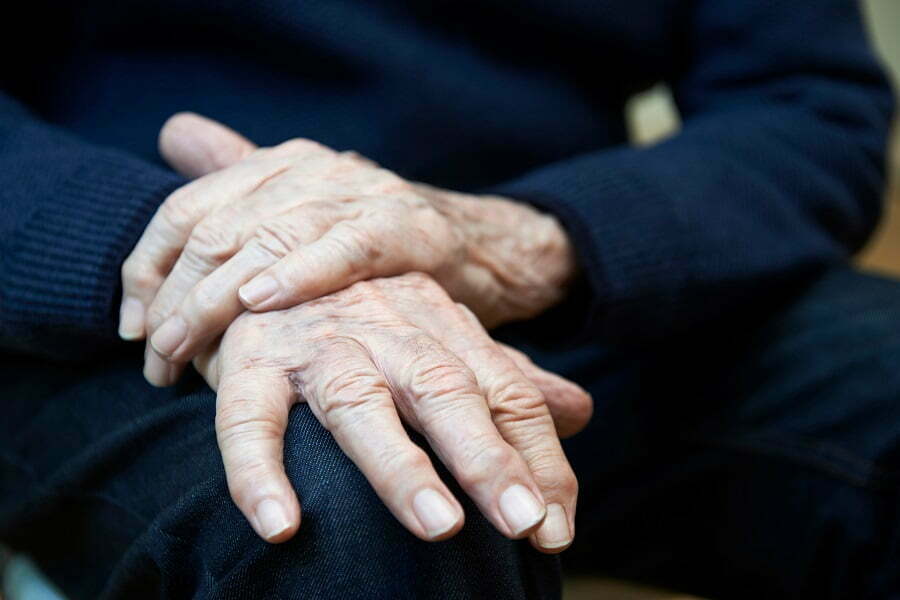
Early Warning Signs of Parkinson’s Disease
Parkinson’s disease (PD) is a chronic, progressive disorder that causes cell loss in a specific part of the brain, called the substantia nigra. PD results in a loss of dopamine, a neurotransmitter that helps regulate movement.
An estimated 1 million people in the U.S. are living with PD. While there isn’t a cure, there are ways to treat it, and scientists are looking for ways to identify the disease sooner and develop more tailored treatments to slow its progress.
What Are the Early Signs of Parkinson’s?
The Parkinson’s Foundation says there are 10 early signs of Parkinson’s, and if you or a loved one has more than one of them, you should talk with a doctor.
- Tremors — It’s common to see a slight twitching or shaking in a hand, finger or foot. In the earliest stages, the tremor may be so slight only the person experiencing it notices, but it will worsen as the disease progresses.
- Sleep problems — Early signs of Parkinson’s can include uncontrollable movements while sleeping. Kicking, flailing arms, thrashing or falling out of bed on a regular basis are indications of something serious.
- Small handwriting — A sudden change in handwriting may be an early warning sign. That’s because people with the disease have a hard time controlling movements, making fine motor skills more difficult.
- Reduced sense of smell — Loss of smell can be changed by a cold, but it should get better as you do. Having trouble smelling food on a regular basis could be a symptom.
- Trouble moving or walking — Some stiffness or slowness in the morning is fairly common as you age. But with Parkinson’s, that doesn’t go away as the day goes on. There may be jerky motions or more uncoordinated movement, and some people say it feels like their feet are stuck to the floor.
- Voice changes — If the voice becomes hoarse or seems much softer over a period of time, it may be time to check with a doctor.
- Facial masking — Parkinson’s can affect the muscles in the face, too. That can make your face look like it has a permanent sad, serious or angry expression.
- Constipation — Some medications or a lack of water or fiber in the diet can cause constipation. But if these aren’t a factor and you have trouble moving your bowels without straining, it could be an indication of Parkinson’s.
- Dizziness or fainting — If they occur on a regular basis, these can be signs of low blood pressure — which could be linked to Parkinson’s.
- Stooping or hunching over — If friends or family members notice slouching, leaning over or stooping when you stand, it might be connected to Parkinson’s.
Cognitive Changes with PD
According to the American Parkinson Disease Association, it’s common to also experience problems with thinking, word finding and judgment. In some people with PD, the cognitive symptoms are mild. But for some, the changes significantly impair their ability to function in everyday life. In fact, about 40% of PD patients develop dementia.
If cognitive impairment is severe or there’s a diagnosis of dementia, it may be time to consider full-time care in a residential memory support setting. Memory support staff are specially trained to help residents with dementia navigate daily tasks, engage in meaningful activities, socialize with others, and celebrate the abilities they still have.
What to Do Next
If you or a loved one is showing early signs of Parkinson’s, make a doctor’s appointment as soon as possible. The earlier you can get a diagnosis, the earlier treatment can start. Treatment might involve:
- Referrals to a neurologist for medication or surgery recommendations
- Treatment from occupational, physical or speech therapists
- Recommended exercise plans to slow progression
- Help developing a support group of friends and family members
It’s possible to have a good quality of life with Parkinson’s, especially when it’s diagnosed early.
If you’d like to learn more about how memory care at The Buckingham could support a loved one with Parkinson’s, feel free to get in touch with us.

